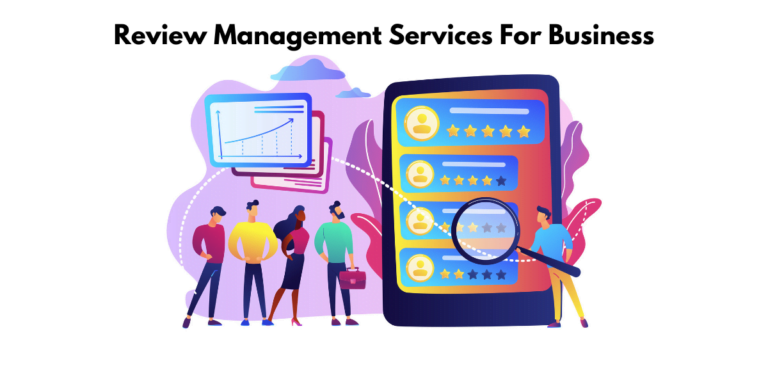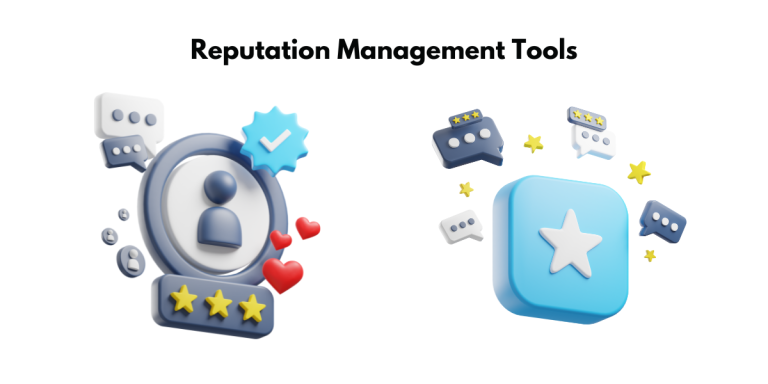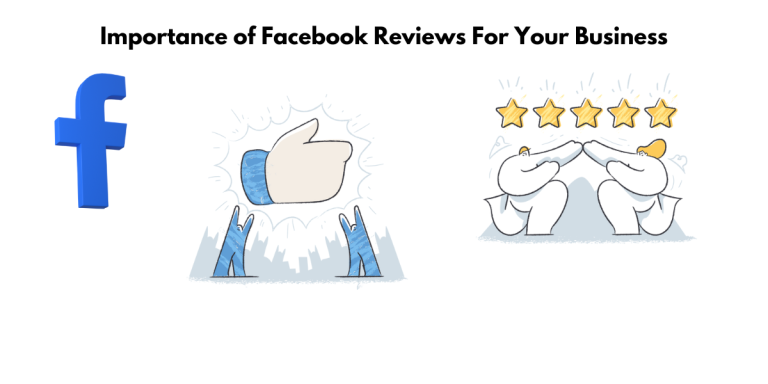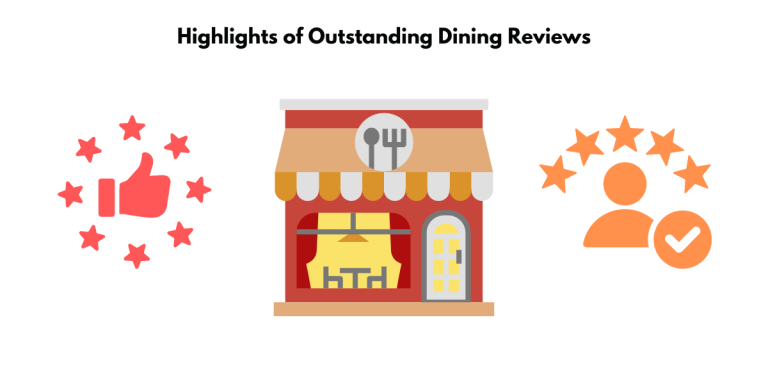Online Reviews: What is online review management?
Online review management is the process of monitoring, analyzing, responding to, and generating reviews across multiple online review websites.
This supports a company’s marketing strategy and improves overall business performance.
Businesses need to take a proactive approach to their online reviews to increase visibility, social proof, and customer growth.
Online review management includes review generation, monitoring, marketing, and analysis strategies.
What is the importance of online review management?
Online review management is an essential part of any business’ marketing strategy, as it helps to monitor, analyze, respond to, and generate reviews across multiple online review sites.
Research has shown that 72 percent of customers won’t take action until they read reviews, and 94 percent of people have been convinced to avoid a business due to a negative review.
Through online review management services, businesses can expand their unique selling points and maximize their team’s time.
Additionally, it can enhance a business’ SEO strategy, giving them an edge in the digital marketplace.
With review management services, businesses can identify their weaknesses, improve accordingly, and monitor customer feedback to ensure they offer the best possible service.

10 ways review management can help you grow your business
Online reviews have become an integral part of today’s digital landscape, and businesses are increasingly turning to review management tools to capitalize on the opportunities these reviews present.
By leveraging insights and analytics, you can use review management to elevate customer experiences and grow your business.
Here are ten ways review management can help you thrive in today’s digital market:
1. Review management can help grow your business reputation
Review management can help grow a business’ reputation by providing customers with an easy way to share their feedback and experiences.
It also allows businesses to proactively manage their online reputation by responding to customer reviews, showcasing their best qualities, and clarifying any misinformation in the public domain.
Additionally, review management can help businesses identify areas needing improvement and boost their local SEO ranking.
All these benefits can lead to enhanced brand trust, increased sales, and higher customer satisfaction.
2. Review management can help increase your brand awareness
Review management is an important part of any brand’s marketing strategy.
It helps increase brand awareness, build trust, and improve online reputation.
By monitoring reviews on sites like Google, Facebook, Yelp, and Tripadvisor, businesses can respond to customer feedback quickly and appropriately, manage the fallout of negative reviews, and encourage positive mentions.
With the right review management strategy, businesses can do the following:
- generate easy-to-understand reports and ratings about how their brand is being discussed online
- leverage positive reviews to promote their brand
- use insights to improve their customer experience and grow their business
3. Review management can help increase customer satisfaction
Review management can help to increase customer satisfaction by offering a streamlined communication process, making it easier and more enjoyable for customers to interact with the business.
It also helps to boost reputation and local SEO ranking, as well as save time.
Review management software also provides valuable insights into customer feedback, which can be used to adjust processes, design, and customer service to meet customer needs and expectations better.
Finally, review management helps businesses be better prepared for PR disasters, build trust with customers and allow them to feel more confident purchasing products and services.
4. Review management can help increase your business’ visibility
Review management is an essential part of any business’ marketing strategy.
It allows businesses to:
- protect and improve their online reputation
- boost their search engine performance
- foster brand trust among existing and potential customers
By implementing a review management strategy, businesses can benefit from increased visibility through expanded USPs, improved local SEO ranking, and increased customer trust.
Additionally, customer review software can help businesses save time by providing an efficient and streamlined communication process.
These benefits help businesses attract more customers, boost sales, and build strong relationships.

5. Review management can help increase your business’ trustworthiness
Good review management can help increase a business’ trustworthiness in several ways.
Firstly, businesses can protect and improve their online reputation by collecting and responding to online reviews.
This helps to foster brand trust among existing and potential customers, as over 80% of consumers trust reviews as much as they trust recommendations from family and friends.
Furthermore, review management software allows businesses to do the following:
- boost their reputation
- increase their local SEO ranking
- save time by creating a streamlined communication process
This makes the entire buying journey easy and enjoyable for both the business and the customer, which can lead to more positive reviews.
Finally, reviews allow businesses to identify operating flaws and inform their brand messaging and marketing strategies.
These factors contribute to a business’ trustworthiness and help build a stronger presence in the marketplace.
6. Review management can help increase your business’ conversion rate
Review management is essential to any business’ marketing strategy as it can help increase a business’ conversion rate.
By collecting good reviews, businesses can attract more customers and build trust with potential buyers before entering a store or landing on a website.
Review management software is one of the most efficient and streamlined methods of collecting reviews.
It automates the process of contact input, message development, A/B testing, ToS removals, root cause analysis, monitoring, and campaign management.
As reviews generally improve within a few weeks of implementing a review management strategy, businesses can see an increase in their conversion rates in no time.
The process works by analyzing review platforms that need improvement, analyzing reviews for possible removal, and developing high-conversion messaging to be sent to customers.
By incorporating reviews into their marketing materials, businesses can also rank higher in search results and improve their ad quality scores, resulting in more conversions.
Review management is a powerful tool to increase a business’ conversion rate.

7. Review management can help reduce customer abandonment
Review management can help reduce customer abandonment by creating an effective feedback loop to understand customer behaviors and needs better.
With automated or manual contact input, messaging development, A/B testing, and ToS removals when possible, businesses can ensure that customers have an enjoyable experience with their brand.
Additionally, review management software allows businesses to monitor reviews, manage campaigns, and generate easy-to-understand reports and ratings about how their business/brand is being discussed online.
Social media management also allows businesses to monitor and actively participate in conversations about their brand.
Finally, businesses can leverage positive reviews to promote their brand on their website and social media pages, increasing customer satisfaction and engagement.
8. Review management can help reduce negative reviews
Review management software can help reduce negative reviews’ impact by allowing businesses to respond quickly and efficiently.
By responding to negative reviews promptly and professionally, businesses can demonstrate their commitment to customer satisfaction and show that they take customer feedback seriously.
This can help mitigate the effects of negative reviews and encourage customers to leave positive reviews in the future.
Businesses can also use review management software to encourage customers to leave positive reviews by sending emails or advertising campaigns inviting them to share their experiences.
Finally, businesses can also use review management software to create reports and ratings showing how their business is being discussed online, helping to identify potential issues and rectify them before any further damage is done.
9. Review management can help increase positive reviews
Review management can help businesses increase positive reviews by:
- allowing them to monitor dozens of review websites
- send automated emails and advertising campaigns to customers
- encouraging them to share a positive review
- automatically monitor conversations around their brand
- generate easy-to-understand reports and ratings
Additionally, review management allows businesses to leverage positive reviews and turn them into SEO-friendly content for their website and social media pages to promote their brand.
With the right approach, businesses can use online reviews to support their marketing strategy, outperform their competitors, and positively impact their bottom line.
10. Review management can help increase your business’ online presence
Online review management can help a business increase its online presence in several ways.
Reviews posted on sites like Google, Facebook, Yelp, and Tripadvisor can play an important role in consumers’ purchase decisions, making it critical to have an effective review management strategy.
By managing reviews, businesses can protect and improve their online reputation, boost their search engine ranking, and foster brand trust among existing and potential customers.
Furthermore, review management services can expand your unique selling points, maximize your team’s time, and enhance your SEO strategy.
These benefits can help your business grow and increase its online presence.

How to manage your online reviews
Managing your online reviews is essential for any business looking to grow and thrive in today’s digital world.
With customers turning to online review sites like Google, Facebook, Yelp, and Tripadvisor to inform their purchase decisions, it’s critical to have an effective online review management strategy in place.
By managing your online reviews, you can protect and improve your business’ online reputation, boost your search engine performance, and foster brand trust with existing and potential customers.
Step 1: Set review governance and processes
Review governance sets policies and guidelines to ensure that reviews across multiple online review websites are handled consistently and competently.
It helps businesses manage online reviews more effectively by ensuring reviews are monitored, analyzed, responded to, and generated in a way that supports the brand’s strategy and goals.
Additionally, having a review governance system can help protect a business’ online reputation by identifying and addressing any potential negative reviews or feedback before it escalates and affects customer trust.
Ultimately, review governance helps businesses optimize their review management strategies to maximize customer engagement and satisfaction, increase brand visibility, and boost overall business performance.
Step 2: Claim, set up, and optimize review site listings (if you’re starting from scratch)
Site listings are online directories where consumers can find local businesses.
Having your business listed on these sites can help with review management by making your business more visible to potential customers and providing a platform to collect reviews.
Site listings can also help with local SEO ranking by increasing your visibility in search results. Additionally, it can help build trust around your business as customers can see what others have said about your services.
By regularly monitoring and responding to reviews, your business can show customers that you are committed to providing excellent customer service and earning customer satisfaction.

Step 3: Monitor competitor/industry sentiment
Industry sentiment is the collective opinion of customers in a particular industry about a company, product, or service.
It is typically measured by analyzing customer reviews and feedback on various online platforms, such as social media, review sites, forums, and blogs, and using tools to monitor and assess sentiment.
This sentiment can be a significant factor in determining the success of a business.
It can be used to identify opportunities to provide a better product or service and to outperform competitors.
Step 4: Implement review generation strategy
A review generation strategy is a powerful tool for businesses to take control of their online presence and build customer trust. It involves collecting, monitoring, and responding to customer reviews on websites.
This strategy can also identify flaws in the business operations and inform brand messaging and marketing strategies.
A review management strategy is important to maintain a brand’s image, directly affecting sales.
Furthermore, review management software can boost a business’ reputation, raise its local SEO ranking, and save time.
Step 5: Optimize content that gets clicked on the most frequently
Optimizing your content for reviews is essential for generating positive customer engagement and increasing your online visibility.
Here are some steps you can take to ensure that your content is optimized for reviews:
- Optimize your review profiles. This includes ensuring that your profiles are up-to-date, complete, and accurate. It also means optimizing your profile for each niche or industry-specific review site.
- Post content consistently. Depending on the platform, you may need to post incentives, special offers, and featured images to engage customers and generate revenue.
- Set up testimonials/review showcase page on your website.
- Install and connect an automated plugin with curated reviews.
- Manually write reviews in review schema or an automated plugin like review stream to include schema data automatically.
- Add first-party reviews into your review portfolio mix.
- Create a sharing strategy for social sharing. Choose the social media platform to share your reviews and set automated share settings.
By following these steps, you can ensure that your content is optimized for reviews, allowing you to generate positive customer engagement and increase your online visibility.
Step 6: Monitor the best reputation management software available
Reputation management software is designed to help businesses monitor the web and respond to negative reviews while encouraging positive ones.
This software can have various features, from review management and review generation to more robust systems that can provide reports on a business’ overall online profile.
Furthermore, reputation management software can either be cloud-based or on-premise and should be tailored to the business needs, depending on the size and scope of their operations.

Step 7: Analyze top-rated review sites
Review sites are online platforms where customers can leave reviews and ratings about products or services.
Reviews from these sites can provide an overall evaluation of software and can be used to help decide which review management software to invest in.
Review management software helps businesses collect testimonials and reviews, respond to negative feedback, and improve customer perception of the product or service the business offers.
- Google Reviews
- Facebook Recommendations
- Yelp Reviews
- ZocDoc Reviews
- Edmunds.com Reviews
- Houzz Reviews
- Zillow Reviews
- Avvo Reviews
- Trustpilot
Step 8: Generate high-quality content that gets clicks
Creating high-quality content to generate reviews is essential to any review management strategy.
Here are some tips to help you get started:
- Optimize your review profiles by including NAP (name, address, and phone), photos + videos, question and answers and FAQs (where relevant), descriptions, keywords + tags + categories, hours of operation, website address, booking and appointment URLs (if applicable), tracking details (e.g., discount/store codes, ad extensions, call tracking phone numbers, labels, etc.), call to action, balanced reviews (5:1 ratio).
- Claim and set up your listings on mainstream websites such as Manage Google Reviews, Facebook, Yelp, BBB, and industry/niche sites.
- Post content on your review sites consistently, including incentives, special offers, and featured images.
- Leverage rich snippet stars to provide a distinct “attention-getter” advantage.
- Transform feedback from reviews, likes, listings, comments, and clicks into your competitive advantage.

Step 9: Monitor online reputation management software platforms to determine the best fit for your needs
Determining a good reputation management software depends on a few important factors, including the size of your business and the features offered.
For businesses with one location, look for a system that focuses on review management and review generation so that you can monitor and respond to reviews.
For larger businesses with two to three locations, find a system that focuses on monitoring reviews and social media and helping generate positive reviews from satisfied customers.
Businesses with more than three locations may want to find a more robust system that offers integration with other systems and can keep track of reviews and mentions from each franchisor.
Additionally, you may want to consider cloud-based software versus on-premise software, depending on the needs of your business.
Ultimately, reputation management software is important for businesses of all sizes and varieties, as it helps you maintain a strong, positive online profile.
Step 10: Boost local SEO with in-depth knowledge of each provider’s capabilities
If you’re looking to boost your local SEO, managing your online reviews is the best way.
Good reviews will help Google see your business as real and trustworthy and ensure your local SEO ranking is higher.
By having a presence on Google My Business, Yelp, TripAdvisor, Facebook, and other relevant review sites, potential customers will be more likely to find you.
Post content consistently on the platforms, offering incentives, special offers, and featured images to engage customers.
- Advocacy Marketing Explained: Understanding the Concept with Definitions and Real-Life Examples - May 14, 2025
- Harmonizing Artificial Intelligence (AI) Prowess with Human Insight: Crafting the Ultimate Google-Savvy Content - May 6, 2024
- 10 Ways Review Management Can Help Grow Your Business - May 15, 2023







